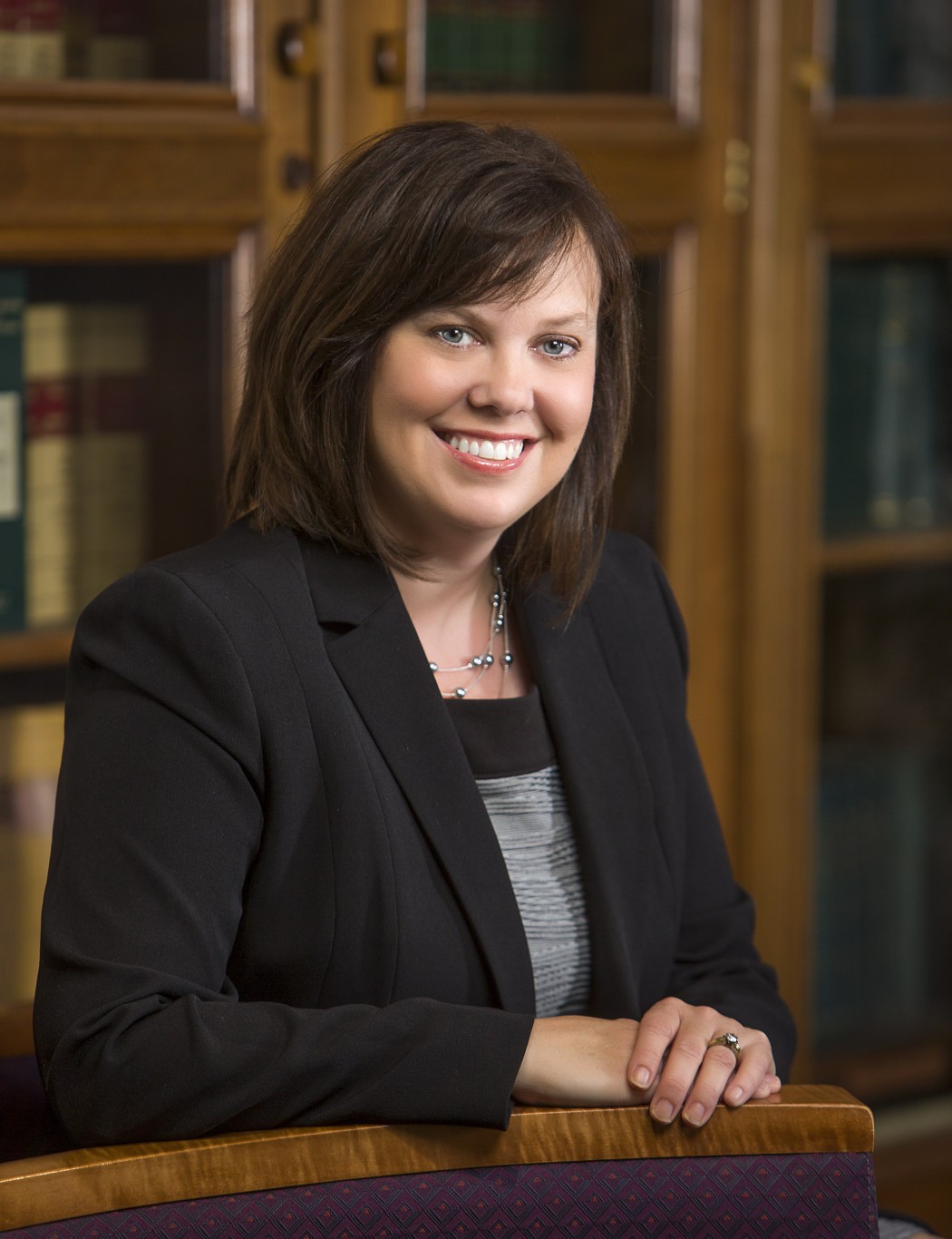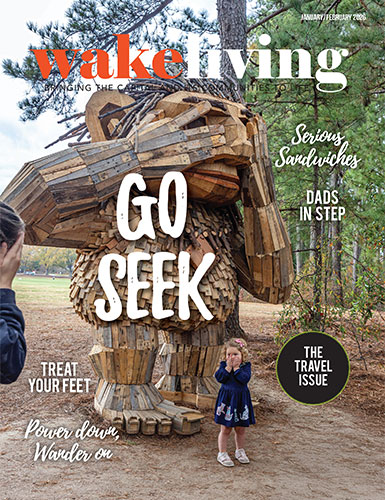Tracy Weeks is in an exciting place.
As a lifelong technology geek and a passionate educator, she has spent her career helping teachers and students use computers to make learning more successful, more efficient, and just plain more fun.
Now, as the first-ever chief academic and digital learning officer for the North Carolina Department of Public Instruction, Weeks wants to see innovation in classrooms across the state. And she’s not the only one.
“There are a lot of things we can disagree about in this state when it comes to education, but digital learning is something just about everyone can get behind,” said Weeks.
“I’m in a position where most of the time I’m working with legislators and leaders across the state,” she said. “That all these different people, across political lines, all seem to be excited about something I’ve been excited about my whole career, is really rewarding.”
During her tenure leading the North Carolina Virtual Public School, the department won accolades for its innovative Blended Learning Program. The initiative pairs an online teacher with a face-to-face classroom teacher to provide personalized lessons for students with disabilities across the state.
The individual attention and extra instruction time raised test scores, and in 2012, the program was given the Recognition of Achievement in 21st Century Education John Wilson Award.
But Weeks envisions a time when every student is taught according to how he best learns.
“We are really getting close to an era where we can personalize learning for each and every student,” Weeks said.
Already, North Carolina students can access a wide range of high-quality courses online, to augment the offerings at their local schools. Even in poor or rural districts, kids can study a wide variety of subjects.
“It’s leveled the playing field across the state as far as access,” Weeks said.
Through NCVPS, highly motivated, high-achieving students can take advanced math or foreign language courses. Average students can pick up core courses or specialized electives, and struggling students can stay on track with credit recovery courses.
“Data proves that regardless of a student’s ability level, if we train our teachers properly, if we build our courses properly, and partner and provide support properly, there is no barrier for any student,” Weeks said. “I don’t care where you are on the learning spectrum, if we can put those pieces together — the content, the instruction and the support — we can meet the needs of any student.”
The key to this is resources. Money from the federal Race to the Top program allowed schools to invest in computers and other infrastructure, but maintaining the hardware and keeping up with upgrades will be an ongoing challenge.
Recently state leaders asked the Department of Public Instruction to develop a digital learning plan. Weeks’ department looked at staff training, hardware, Internet access, broadband and wireless capability across the state. This digital learning plan will guide future state budgets.
Prominent on Weeks’ wish list is widespread Internet access. She says treating the service as a public utility would boost K-12 learning, improve teacher training, and increase access to higher learning.
Weeks’ enthusiasm for technology is infectious and comes from experience.
“We had a computer in our house well before most folks had a computer,” she said. Weeks’ father sold office equipment — dictating machines and then PCs. He was always taking them apart, and playing with them was something they did together, she says.
But despite that early interest, a career in technology was not her first choice. In fact, neither was teaching.
“If you had asked me my junior year of high school, where I was going to college and what I was going to do, I would have responded something like this: ‘I’m not really sure, but I’m not going to be a teacher and I’m not going to Carolina.’ And then I did both of those things.”
Weeks owes her career in education to the NC Teaching Fellows Scholarship, which was discontinued in 2011. Many of the top students from her Kernersville high school went into teaching because of that scholarship, she says.
“I always liked computers, but it was never encouraged as a career,” she said. “I didn’t know what was out there.”
Today, kids know more about careers in technology than ever before, but it’s still a challenge to recruit girls into the hard sciences. Weeks acknowledges this, and says adult women in technology need to be advocates as well as role models. This is especially true for those in leadership.
But the passion and confidence needed in young engineers and scientists has to come early. That’s where integrating technology throughout the curriculum comes in, Weeks says. Playing a video game that teaches simple coding, making a multimedia book report, or taking a virtual tour of a faraway place can all teach vital computer literacy.
“Starting those skills early is very important, and for girls in particular, starting in elementary school,” Weeks said. “We know that once they hit middle school and start going through puberty, that’s when they start to lose confidence in math, science and technology.”
Weeks’ dream is to use technology to help all children learn — not just girls, not just kids in North Carolina.
“How do we bring learning to the most inaccessible places?” she asked.
One answer is the Internet.
In early August, Weeks and a group of fellow Kirk of Kildaire Presbyterian Church members visited a remote mountain village in Guatemala. The church had set up a computer lab there using refurbished equipment and a satellite Internet connection.
By enabling villagers to have online access to information and learning materials, students can do their research for classes without traveling to another village.
“There are places across the globe where all girls want to do is to be able to learn, and sometimes it’s not safe,” she said. “If we can figure out a way to bring learning to a place where it’s safe for any child who wants to learn, that would be the most amazing thing.”
Education: Bachelor's degree in secondary mathematics education from UNC-Chapel Hill, master's degree in instructional technology, and doctorate in curriculum and instruction, both from NCSU.
Family: Married with two daughters, ages 9 and 5
Lives in: Holly Springs
First job: At Zack's Famous Frozen Yogurt in Kernersville
First real job: Math teacher at Hickory (N.C.) High School
Hobbies: Weeks loves to read. Weeks recently took up crocheting, which she learned from watching YouTube videos late at night. She made a Gryffindor scarf for her daughter, after the two read the Harry Potter series together. Now she is learning to knit.
- Gemimah Hernandez Fuentes, Program Coordinator, SAFEchild; Owner, A Better Choice: Rise Up Counseling
- Dr. Tracy Weeks, Chief Academic & Digital Learning Officer, N.C. Department of Public Instruction
- Angela Newman, Nursing Director, Women’s Pavilion and Birthplace, WakeMed Cary
- Lisa Grimes, President & CEO, PurThread
- Meet the 2015 Women of Western Wake
- Awesome Autumn: Your Guide to Fall Fashions
- ‘Fore’ the Community
- Cycle of Hope
- Follow Your Heart
- Charity Spotlight: HopeSpring Village
- Make Room for Mushrooms
- Your Garden Questions, Answered
- Jenn Mann, Vice President of Human Resources, SAS






